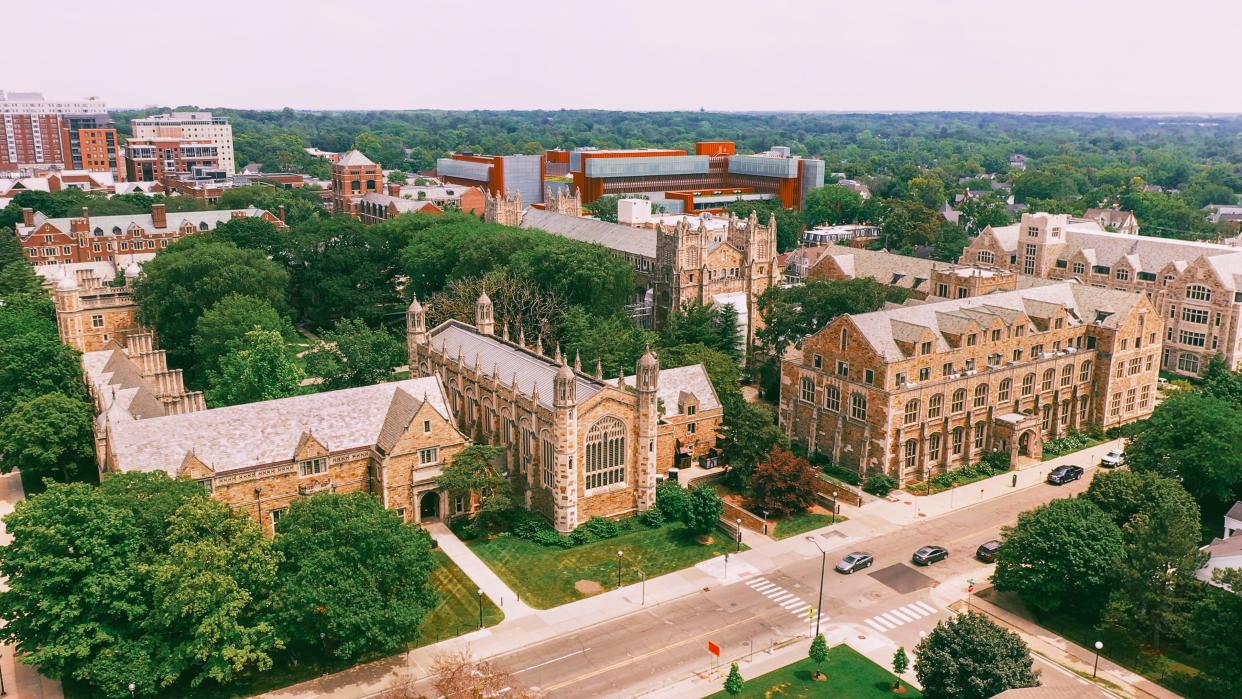This college town is experimenting with giving low-income entrepreneurs and gig workers $12,672, no strings attached

Ann Arbor is providing 24 monthly payments of $528 to low-income residents.
The guaranteed basic-income program focused on entrepreneurs, small business owners, and gig workers.
Past GBI participants reported using the money to pay for rent, groceries, and medicine.
Guaranteed basic income helps low-income Americans pay rent and support their families, and Ann Arbor, Michigan is using the model to try something new: helping local entrepreneurs.
Ann Arbor's program, called Guaranteed Income to Grow Ann Arbor, is giving low- and moderate-income residents $528 a month, no strings attached. The GBI pilot will specifically benefit entrepreneurs, small business owners, and gig workers.
Monthly cash payments began in January and will continue through the end of 2025. Eligible participants have an income at or below 225% of the federal poverty line — which is $32,805 for an individual and $67,500 for a family of four.
Throughout the US, guaranteed basic income has become an increasingly popular poverty-solution strategy. Over 50 municipalities have tried the GBI model since 2019, offering low-income participants between $100 and $1,000 a month, no strings attached for one to five years.
The program eligibility requirements also list a broad definition of entrepreneurship: participants can have side hustles, be independent contractors, own small businesses, or hope to start a small business. Local musicians and artists who met the income criteria could also apply.
"Starting and sustaining a business is a dream of many people, yet for those with lower incomes, it can be a difficult dream to achieve," program researchers wrote. "This pilot will help us learn whether guaranteed income payments can be an effective way to help some entrepreneurs with their business efforts."
Basic income differs from traditional Social Services because participants can use the money however they choose, instead of on specific spending categories. GBI participants in cities like San Antonio and Denver told Business Insider that cash payments allowed them to secure housing, afford groceries, pay off debt, and buy clothes and school supplies for their children.
"You're deciding what's best for your family, you're the expert on your family," Monique Gonzalez, a participant in San Antonio's GBI program, previously told BI. "Being able to utilize these funds in a manner that puts you back into control — it boosts your confidence."
Ann Arbor GBI pilot could help low-income entrepreneurs build their businesses
Before launching Guaranteed Income to Grow Ann Arbor, the city was already a hub for technology and small businesses. Nearly half of the startup companies in Michigan are located in the Ann Arbor area, according to an entrepreneurial ecosystem report of the state by the nonprofit research company Entrypoint.
The city is pulling $1.6 million for the GBI pilot from the 2021 American Rescue Plan Act, pandemic-era economic recovery funds that have commonly been used to fund basic income. The Ann Arbor Area Community Foundation also contributed money, and the University of Michigan will be paying the salaries of program researchers.
The program is a randomized control trial: of the total 200 participants enrolled, 100 people will receive payments, while the other 100 will not. All participants will be surveyed about their experience by researchers at the University of Michigan.
Similar to Ann Arbor, more GBI pilots are choosing to provide assistance to specific demographics. For example, a program in Atlanta is open to low-income Black women, a program in Denver provides aid to people experiencing homelessness, and Flint, Michigan's program is giving funds to new mothers.
And, in light of past success, new programs are being created. Chicago announced in April that it restarted its previous GBI program that offered low-income residents $500 a month.
Even so, GBI continues to face opposition from Republican state legislators.
A GBI program in Harris County, Texas is being challenged by Attorney General Ken Paxton, who called the program "unconstitutional." While the state Supreme Court is reviewing the case, 1,928 families will not receive their cash payments, which were set to begin April 24.
Other lawmakers have called basic income "socialist," and said it will make low-income people too dependent on government assistance. Iowa, Arizona, and South Dakota have also all made efforts to ban GBI programs.
Have you benefited from a guaranteed basic-income program? Are you open to sharing how you spent the money? If so, reach out to this reporter at allisonkelly@insider.com.
Read the original article on Business Insider


